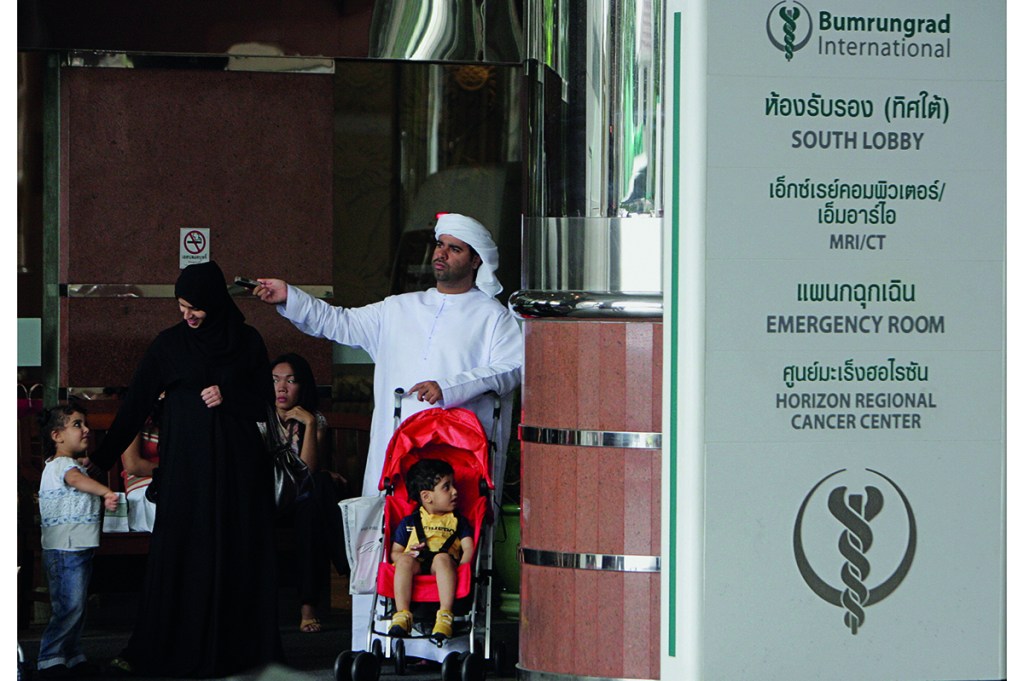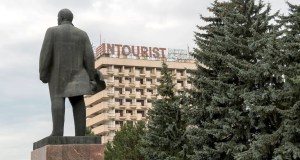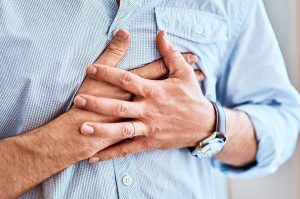Thailand is famous for many things, some of which are unmentionable in these pages. It has long been considered the perfect location for ‘winter sun’, if you are the type of person to whom a piña colada on a white sandy beach appeals. In recent years, it has become a hotspot for hypochondriacs requiring non-essential medical care and hysterics after a nip-and-tuck (pre-COVID, the health-tourism industry was thought to be growing at 14 percent a year). Home to the orchid, pad thai, the Monkey Buffet festival (what it says on the tin), the Siamese cat and the bumblebee bat, Thailand’s gentle and healing culture has earned it a reputation as a cleaner, greener land.
It may therefore come as a surprise to learn that in stark contrast to the romantic scene described above, the country formerly known as Siam is imposing some of the world’s most vigilant anti-COVID measures in the world. I write sitting in an airtight room that I haven’t been permitted to leave in 13 days. I am currently subject to the Thai COVID Rulebook, and it is fierce.
All of the signs were there. Borders have been closed since March, and the visa application process — which involved more sheets of paper than a Harry Potter print run — was dragged out for over a month, only eventually successful due to the aid of an exceptionally kind individual in the Royal Thai Embassy of London. All travelers to Thailand are required to complete 14 days quarantine at a State Quarantine or Alternative State Quarantine (ASQ) facility. But a relative who lives here is ill — very ill indeed. It is fright that spurs me on; it is weakness, not strength, that persists.
And so it is that I find myself locked into 52 square feet of Bangkok’s International Hospital on a mercy dash. ‘Do you know about Audible? You’ll need Audible to get you through,’ a friend advises solemnly. There are swathes of empty rooms and suites, normally inhabited by tycoons from the Middle East. The hospital is suffering due to the dereliction of international custom. It’s a Catch-22: no one is allowed in, and there are no indications that this will change any time soon. It would be comforting to think that this cruel turn of fate doesn’t prevent the nurses from smiling — they are friendly and willing — but it’s impossible to know, since they are swathed in eight layers of harassing Personal Protective Equipment. Masks, hairnets, plastic goggles, ear nets and some sort of gauze Wellington boots that wouldn’t look misplaced on an astronaut are all de rigueur.
You would be forgiven for thinking that Thailand was up against Britain, Brazil, Italy, the US or Spain in the Competition That Nobody Wants to Win. There is surely no other explanation for covering curtains in plastic packaging, or — fine, I’ll say it — withdrawing people’s liberty for over two weeks, in the name of what First Lady Melania Trump has termed ‘the invisible enemy’.
This couldn’t be further from the truth. At the time of writing, Thailand has seen 3,444 cases of coronavirus, with a wimpish — or impressive — 58 deaths. Friends from outside these four very beige walls report via WhatsApp (which is fast becoming a lifeline) murmurs of underreporting from the authorities. This is of course the country with the harshest lèse-majesté laws in the world: insulting the king, his family, or even any of their pets can carry a prison sentence of up to 35 years. The press is subject to similar restrictions: in 2010, the Economist was banned for calling the Crown Prince, now King Rama X, ‘unpredictable’. But Thailand (unlike the UK) has unwavering confidence in its approach to the virus. ‘The small number of cases can provide the false sense of security that the situation is “under control”,’ warns the Bangkok Post. ‘This can lead to complacency, decreased public cooperation and potentially to a premature relaxation of control measures.’
While it is not altogether impossible that figures are being misreported, it is extremely unlikely that they could be understated to the tune of only 58 deaths: COVID is not as invisible as Mrs Trump would have us think.
The cost of these extraordinary low numbers is liberty. So extreme is that trade-off that, by Day 11, I understand why my windows are sealed shut and why I am not allowed knives. This agonizing lack of human interaction, this thundering silence, this stinking heat, these days of not witnessing anyone laugh or cry, the absence of fresh air, this dearth of life: it is both inhuman and inhumane.
Perhaps the picture here illustrated isn’t quite hideous enough. Perhaps you are thinking that it doesn’t sound so bad. And it isn’t; if you like having your temperature checked and your blood pressure measured every two hours. If eating gray food out of minuscule plastic receptacles with blunt plastic objects is up your Soi, as they say here, then Thailand is the place for you. But beware: the Thai for ‘please’ is ‘ko-ro-nah’.
This article is in The Spectator’s November 2020 US edition.


















